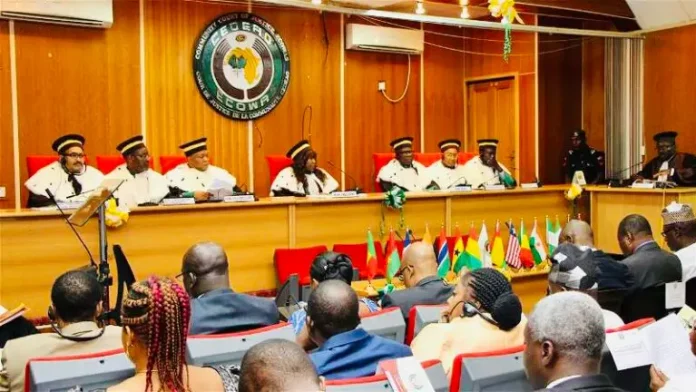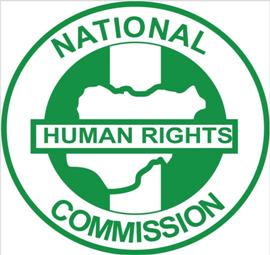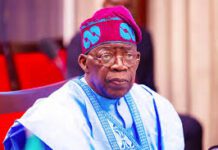The ECOWAS Court of Justice on Monday in Abuja dismissed a petition filed by Media Rights Agenda (MRA), an NGO, seeking to compel the Nigerian government to pay N10 million reparation each to the families of 11 deceased journalists.
MRA had in the suit filed in 2021 also sought to compel the Nigerian government to properly investigate the unresolved killing of the journalists between 1998 and 2021, identify, and prosecute their killers.
Delivering judgment, a three-member panel of the Court, presided over by Justice Gberi-be Ouattara, and delivered by Justice Dupe Atoki, held that the 11 journalists could not be equated as “public” with regards to proof of the victims’ status and dismissed the group’s petition.
The Court also held that although the murder of the said 11 journalists was a gross violation of their rights, it was bereft of jurisdiction to entertain and award reparations for the victims.
Earlier during the hearing of the case, MRA’s counsel, Mr Darlington Onyekwere, had argued that States were not only prohibited from taking life outside the permissible circumstances allowed by law but that they also had a positive obligation to act to prevent the loss of life.
The group’s counsel had argued that the MRA’s case was largely predicated on the African Charter, which the Supreme Court of Nigeria had held in Abacha & Ors v. Fawehinmi (2001) 1 CHR 20 to supersede domestic laws.
The human rights lawyer also contended that the Government could not rely on domestic laws to escape liability for the human rights violations complained of in the case.
Onyekwere had contended that the victims had been properly identified and could not have been made parties to the suit, contrary to the repeated arguments of the Government.
The MRA, therefore, prayed the court to direct the Federal Government to pay the families of each of the journalists N10 million as reparation, insisting that in spite of the Nigerian government’s obligations under various domestic, regional, and international instruments.
Onyekwere had argued: “The government has failed, refused, neglected and omitted to effectively investigate, prosecute and punish the killers of the journalists, who were murdered while exercising their fundamental right to freedom of expression and of the press or under circumstances connected to the exercise of these rights.
“Unless the court intervenes, the government will neither adopt measures to protect journalists nor cause any real, transparent, and impartial investigations into the killings of journalists in Nigeria, while the perpetrators of such dastardly acts will not be prosecuted and punished.”
He, therefore, prayed for a declaration, “that the failure of the Federal Government to adopt effective measures to protect and guarantee the safety of the 11 journalists under Article 66(2)(c) of the Revised ECOWAS Treaty, 1993 and Principle 20 of the Declaration of Principles on Freedom of Expression and Access to Information in Africa, amounts to a breach of the obligation imposed on the Government by the ACHPR and the Revised ECOWAS Treaty,” among others.
However, responding, Mr Solomon Ogunlowo, the counsel to the Federal Government/Respondents, and Principal State Counsel in the Federal Ministry of Justice, had urged the Court to decline jurisdiction and hold that MRA’s suit was inadmissible.
Ogunlowo had challenged the competence and admissibility of MRA’s suit and contended that the Court lacked jurisdiction in the matter, stressing that the MRA lacked the locus standi to file and maintain the suit.
MRA, he argued, was not the victim of the human rights allegedly violated and which it was seeking to protect through the suit, adding that no victim had been properly identified and made a party to the suit.
According to him, MRA did not suffer any wrong or injury directly or indirectly on which basis the application could be maintained.
The News Agency of Nigeria (NAN) reports that the deceased journalists, over whom MRA filed the suit on August 16, 2021, were: Mr Tunde Oladepo, Bureau Chief of The Guardian newspaper’s Ogun State office, killed in Abeokuta on Feb. 26, 1998 by gunmen who entered his home early in the morning on that day and shot him dead in the presence of his wife and two young children.
Mr Okezie Amauben, publisher of Newsservice magazine was reportedly arbitrarily shot and killed by a police officer in Enugu on Sept. 2, 1998, while Mr Fidelis Ikwuebe, a freelance journalist for The Guardian newspaper, was abducted and murdered on April 18.
Mr Sam Nimfa-Jan, a journalist with Details magazine in Jos, Plateau State, was killed outside the prison in Kafanchan, Kaduna State on May 27, 1999, while covering a communal conflict in Zangon-Kataf.
Nimfa-Jan’s body was found with arrows protruding from his back.
Mr Samson Boyi, a photojournalist with the Adamawa State-owned newspaper, The Scope, was killed by armed men on Nov. 5, 1999 while on assignment to cover a visit by the then state governor, Mr Boni Haruna, to the neighbouring Bauchi State.
Mr Bayo Ohu, then an assistant news editor with The Guardian newspaper, was shot by armed men in his home in Lagos on Sept. 20, 2009.
Mr Nathan Dabak, deputy editor, and Mr Sunday Gyang Bwede, reporter, both with the Light Bearer, a monthly newspaper owned by the Church of Christ in Nigeria, were attacked and killed by a mob in Jos on April 24, 2010, while on a reporting assignment.
Mr Zakariya Isa, a reporter/cameraman with the Nigerian Television Authority (NTA) was killed on Oct. 22, 2011, while Mr Enenche Akogwu, a reporter and camera operator with Channels Television, was killed in Kano on Jan. 20, 2012 by gunmen suspected to be Boko Haram members.
Mr Precious Owolabi, a National Youth Service Corps (NYSC) member carrying out his primary assignment as a reporter with Channels Television, was shot and killed in Abuja on July 22, 2019 while covering a protest by members of the Islamic Movement of Nigeria that had resulted in a confrontation with the Nigerian Police.
NAN also reports that the Court did not award any cost against the petitioners and held that parties in the case should bear the cost of litigation(NAN)
By Mark Longyen




